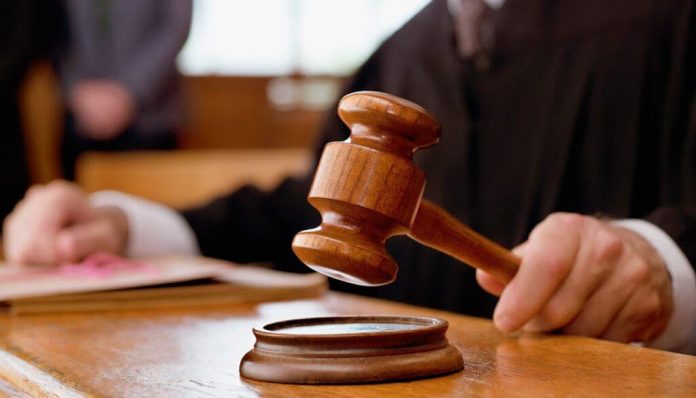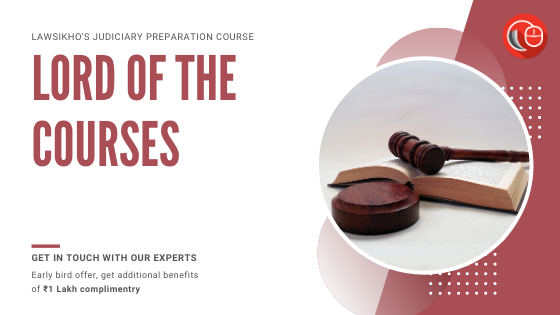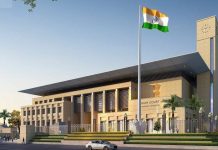This article is written by Vanya Verma from Alliance University, Bengaluru. This article talks about the security provided to Judges and the threats and attacks the Judges face.
Table of Contents
Introduction
This is an interesting topic that many people are unaware of. In reality, there is no scheme in place for the security of Judges. Some Judges, on the other hand, write to the State requesting security. It is based on the representation given by the State. However, studying the functioning pattern of its security would necessitate great consideration.
If we consider the court and legal system to be the spine that keeps the democratic framework together, we owe it to ourselves to defend this critical organ from harm and attack from both within and beyond. We have recently witnessed threats, blackmail, harassment, and physical attacks against our legal system. In such circumstances, the independence of the entire Judicial Administration System (JAS) is jeopardised, and the effectiveness of its decisions as being free of bias, pressure, or intimidation is being hampered.
The Judges (Protection) Act, 1985, a reaffirmation of an 1850 legislation that only protects members of the judiciary from civil or criminal action for everything they do while performing their official activities or duties, made an insufficient attempt. Under the current circumstances, the legislature’s endeavour to protect the judiciary must also include protection from all other types of violent and psychological threats. The 104th Law Commission Report made no mention of this issue, and it’s past time for a thorough investigation into the matter.
Many of these attacks target the system’s most vulnerable and under-protected sections, particularly the district and sessions courts. By establishing a fool-proof security system, you can provide the essential structure and a protective umbrella for this section.
The recent horrible occurrence of what appears to be a purposeful hit-and-run case involving a District Court Judge in Jharkhand has shaken the legal fraternity’s conscience across the country, especially in light of widely distributed video footage. We need a well-protected system for the administration of justice today more than ever, one that comprises both Judges and attorneys, the two wheels of the chariots of justice.
The security provided to the Supreme Court and High Court Judges in India
There is no official report on this security cover, but this information has been collected from certain pertinent sources.
Chief Justice of India
Due to his coveted position, the CJI is generally provided security cover in the Z or Z+ range. Judges’ security is never downgraded throughout their tenure unless there is a compelling reason to do so. They also have the authority to decide or assess their security blanket and can raise or lower it as deemed to be fit.
Supreme Court Judges
Other sitting Judges are generally covered by a Y security blanket, although this can be extended to Z+ if necessary. When they live in the Lutyens zone, security is adjusted properly, but when they move outside, security is enhanced following the requirements. They, too, have discretionary power.
Chief Justice of High Courts
As the head of a state’s judicial organization, the Chief Justice of States enjoys nearly the same degree of benefits as the Chief Minister of State. As a result, their security levels range from Y to Z+, depending on the situation. Every country has its security arrangements for dignitaries.
Judges of High Courts
The other sitting Judges are given the same level of protection as provided to the state Cabinet Ministers.
Lower/District Court Judges
District Judges are normally provided with 2 to 4 arms guards as security cover in their separate jurisdictions, and CJMs are also provided with 1–2 arms guards, while the rest of the Judges are provided with 1 arms guard if necessary. However, the availability of this service differs by state.
These security covers are generally never downgraded during their entire service and cover 24×7 round the clock. The security range differs from post-to-post.
Chief Judicial Magistrate (CJM) and Principal District Judge (PDJ)
Four to five home arms and two gunmen are provided to the CJMs and PDJs at their residence. In addition to this, they are provided with escort vehicles from the headquarters of the District/Area Police when they go for inspection or some other duty purpose in the places of their district.
Supreme Court stays High Court order providing lifetime security to Ex-Judges
The Supreme Court delayed a Jammu and Kashmir High Court ruling requiring the state government to provide retired Judges and Advocate Generals with lifetime security coverage. The proceedings before the High Court were also stopped by a bench led by Chief Justice Dipak Misra and Justice A M Khanwilkar and D Y Chandrachud. The panel agreed with senior lawyer Rajeev Dhavan, who represented the state administration, that the March 14 order of the High Court was incorrect.
The state government argued in its filing that the High Court made a “grave error” by assigning a minimum of 1-4 security guards to all former Chief Justices and Judges of the HC for life. The state government in its plea through the senior lawyer Dhavan and advocate Shoeb Alam, contended that security cover provided to VIPs/protected persons throughout the country was done based on threat assessment and guidelines laid down by the Ministry of Home Affairs.
It stated that the Centre has established a complex system for providing security cover to protected individuals. The state government said, “As a result, the field is filled by a detailed policy that outlines the mechanism for conducting periodic threat assessments and providing security based on those assessments. As a result, it is not a subject unguided by any executive expert policy”.
The directions amounted to “usurpation of an expert function” by encroaching on an area where the state and security agencies had a unique experience, according to the complaint. “It is well established that a Court of law cannot interfere with the execution of an export function or the opinion of experts because it lacks the necessary resources to do so. It had stated that “the functions of an expert body are better left to the expert body which alone is equipped to deal with such concerns.”
On March 14, 2016, the High Court ordered the state to provide round-the-clock security at the homes of each former Chief Justice and Judge of the High Court, as well as one personal security officer. It had stated that security cover should be increased following threat perceptions, and that retiring District and Session Judges should be provided with extended security coverage for a year following their retirement. It also ordered the state to deploy 1-3 security guards personnel at the residence 24 hours a day, seven days a week, for each former State Advocate General and one PSO on demand.
Instances where the Court demanded security for Judges
Give security to Judicial Officers: Madras High Court
The Madras High Court bench converted news reports of unknown miscreants throwing stones at the home of a district judge in Ramanathapuram on Thursday into a suo motu public interest litigation petition, ordering the Home Secretary and Director General of Police to provide adequate security to all Judicial Officers in the state.
A division bench of Justices S. Tamilvanan and V.S. Ravi directed that security be strengthened up, particularly for Justices handling important matters. It also ordered the Home Secretary, the DGP, and the Ramanathapuram Superintendent of Police to provide a thorough report detailing their actions in response to the incident by March 9.
The bench questioned how the police department’s intelligence wing could have failed to prevent the attack by failing to gather advance information, noting that the attack was so severe that a glass splinter from a windowpane that broke during the stone-pelting caused a cut injury below the right eye of District Judge M. Prakasan.
The division bench stated, “People have faith and trust in the Courts to protect their rights. If the District and Sessions Judge, Fast Track Mahila Court, cannot find safety at his home, we can only fathom what will happen to ordinary people who come to the Court for their personal safety and to protect their rights”.
“Independence of the judiciary is one of the key aspects of our Constitution, and it is a precondition for maintaining rule of law and also for the survival of democracy,” Justice Tamilvanan added. The unpleasant and sensitive news that has been published in several popular newspapers today poses a severe danger to the judiciary’s independence.”
Former Chief Justice Ranjan Gogoi had been granted Z plus security by the Centre. Gogoi was safeguarded by a dozen CRPF commandos at all times after being nominated to the Rajya Sabha by the government months after his retirement in November 2019. His residence was guarded by a similar contingent force.
According to sources, intelligence agencies assessed his threat and decided to grant him security cover at the highest level after the Prime Minister. Gogoi presided over the five-judge panel that handed down the Ayodhya decision in 2019.
According to sources, Gogoi was already protected by local police in Assam and during his visits to Delhi. “The protection was provided in anticipation of a threat to him as a result of the Ayodhya verdict. Other four Judges were also given security, albeit on a modest level, according to a Home Ministry official.
The difference this time, according to sources, is that Gogoi will be protected by a specialised VIP team under the authority of the Centre.
Suo motu cognisance by the Supreme Court on the alleged killing of Dhanbad Additional District Judge
The suspected death of Dhanbad Additional District Judge Uttam Anand prompted a concerned Supreme Court to take suo motu cognizance of the case, ordering the Jharkhand Chief Secretary and the DGP to disclose the status of the investigations within a week. Even though CJI N V Ramana spoke with Jharkhand HC Chief Justice Ravi Ranjan, resulting in the HC ordering a probe into the incident, a bench of the CJI and Justice Surya Kant decided to take up the Jharkhand incident alongside those on a pan-India basis, citing reports of attacks on Judges and lawyers from across the country.
The safety and security of Judicial Officers and lawyers, according to the bench, are critical for the justice system’s fearless and independent operation. Vikas Singh, president of the Supreme Court Bar Association, raised the Dhanbad incident before the CJI on Thursday and requested a CBI investigation, calling it a “brazen assault” on the judiciary’s independence.
The bench said it was taking suo motu cognizance of the Jharkhand event because of the proximity of the “unfortunate death of the Additional District Judge” to the murder of a Ranchi-based lawyer on July 26, 2021. The Supreme Court stressed, however, that its suo motu cognizance of the matter would not obstruct the Jharkhand High Court’s investigation into the death of the Dhanbad Additional District Judge.
The Supreme Court described the Dhanbad occurrence as “gruesome” and stated that “it was not a case of ordinary road accident” based on the widespread distribution of the videotape.
On a lonely stretch of the road early on July 28 morning, a vehicle swerved off the road and slammed into Mr Anand from behind, according to the footage. He was discovered bleeding on the side of the road and transferred to the hospital, where he was left for hours unidentified. After the family filed a missing person’s report, the police were able to locate the body. His family has filed a murder case after initially believing he died in a hit-and-run accident.
The bench in its ruling stated, “We direct the Chief Secretary and Director General of Police of the state of Jharkhand to jointly submit a status report of inquiry vis-à-vis the tragic demise of the Judicial Officer Uttam Anand with the Registry of this Court within a week”.
The CJI stated that the Supreme Court is taking suo motu cognizance “in light of other such events involving judicial personnel and attorneys in different areas of the country.” “It has been brought to the attention of this Court that similar events are occurring across the country,” the CJI-led bench remarked.
We believe it is necessary to take up this case suo motu, in light of the state’s role and obligation to create an atmosphere and provide full safety to Judicial Officials and the legal community so that they can execute their duties without fear.”
The panel directed the Jharkhand Chief Secretary and the DGP to outline the efforts taken to secure Judicial Officers, Judges, and the legal fraternity both within and outside the Court complexes, thus putting the Hemant Soren government in a tough place.
Other incidents where Judges have been attacked
- A group of lawyers assaulted Unnao Additional District Judge Prahlad Tandon on March 25 in Uttar Pradesh, enraged over his decisions. The Judicial Officer had resigned after being humiliated in this manner. Eight lawyers were recognised by the State Bar Council as being involved in the assault.
- A man threw motor oil onto Justice V Shircy of the Kerala High Court’s official car, blackening the driver’s side. Chittor magistrate V Ramakrishna claimed he was beaten by governing YSRCP supporters who were supposedly aides of Andhra Pradesh minister P Ramachandra Reddy in July last year. Ramakrishna said he was assaulted due to his differences with previous AP Electricity Regulatory Commission chairperson C V Nagarjuna Reddy. K R Deshpande, a senior Civil Judge in Nagpur, Maharashtra, was allegedly struck by an assistant public prosecutor who was upset with his ruling in a case in 2018.
In 1994, the UN Human Rights Commission decided to appoint a Special Rapporteur on the Independence of Judges and Lawyers in light of the increasing frequency of attacks on the independence of Judges, lawyers, and Court officials, the weakening of safeguards for the judiciary and lawyers, and the gravity of the frequency of human rights violations. The Special Rapporteur on the Safety and Security of Judges and Lawyers continues to issue negative reports.
Daniel Anderl, the son of US District Judge Esther Salas, and his husband, defence attorney Mark Anderl, were shot in their North Brunswick Township, New Jersey, home in July of last year. The tragedy prompted New Jersey to establish a statute named after Salas’ son, Daniel’s Law, in November of last year, making it illegal to disclose personal information about New Jersey Judges, prosecutors, and law enforcement officers, including their phone numbers and home locations.
Conclusion
It is important to provide proper security to Judges and Judicial Officers, including retired Judges of the High Court and lower Courts. Judges are particularly exposed to threats from criminals, terrorists, and others since they are expected to dispense justice in strict conformity with the law. Judges and Judicial Officers are neither allies nor foes; they follow the books of law, such as the Constitution, and their decisions and verdicts cannot be pleasant to everyone and dissatisfying to no one.
The legal system operates based on logic, which is codified in law books. A retired Judge of the High Court or subordinate Courts is just as vulnerable as a serving Judge to the threats of miscreants. As a result, the State must ensure that the retired judge is adequately protected.
Apart from ensuring the safety of Judges and Judicial Officers, it is also critical to ensure that the Courts’ facilities and the entire Court complex are secure against any attack by militants or other criminals. There are always large crowds at the Court complex and in the rooms where litigants, lawyers, Court officials, Judges, visitors, witnesses, and many others must come, meet, talk, and be examined because there are hundreds of cases to be resolved. If sufficient security measures are not in place in such a situation, security becomes vulnerable. Criminals can easily blend in with the masses to conceal their identities, resulting in a dangerous situation that disrupts the quiet environment in which Judges are intended to work.
References
- https://indianexpress.com/article/india/sc-stays-jammu-kashmir-hc-order-providing-lifetime-security-to-former-Judges-4828624/
- https://www.thehindu.com/news/cities/Madurai/give-security-to-judicial-officers-hc/article6918525.ece
- https://lawsikho.com/blog/what-are-the-salaries-and-perks-you-are-entitled-to-at-each-stage-as-a-judge/
- https://www.dailyexcelsior.com/security-to-judiciary/
- https://timesofindia.indiatimes.com/india/supreme-court-seeks-report-from-jharkhand-on-judge-killing/articleshow/84910204.cms
- https://www.indialegallive.com/cover-story-articles/jharkhand-judge-death-judicial-police-Judges-security/
LawSikho has created a telegram group for exchanging legal knowledge, referrals, and various opportunities. You can click on this link and join:
 Serato DJ Crack 2025Serato DJ PRO Crack
Serato DJ Crack 2025Serato DJ PRO Crack











 Allow notifications
Allow notifications


